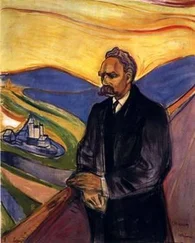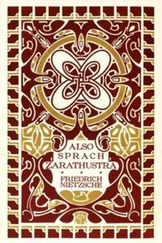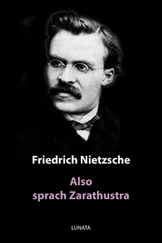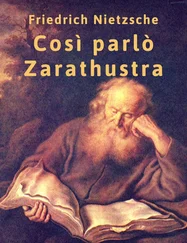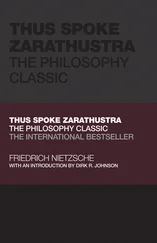Flee, my friend, into thy solitude: I see thee stung all over by the poisonous flies. Flee thither, where a rough, strong breeze bloweth!
Flee into thy solitude! Thou hast lived too closely to the small and the pitiable. Flee from their invisible vengeance! Towards thee they have nothing but vengeance.
Raise no longer an arm against them! Innumerable are they, and it is not thy lot to be a fly-flap.
Innumerable are the small and pitiable ones; and of many a proud structure, rain-drops and weeds have been the ruin.
Thou art not stone; but already hast thou become hollow by the numerous drops. Thou wilt yet break and burst by the numerous drops.
Exhausted I see thee, by poisonous flies; bleeding I see thee, and torn at a hundred spots; and thy pride will not even upbraid.
Blood they would have from thee in all innocence; blood their bloodless souls crave for—and they sting, therefore, in all innocence.
But thou, profound one, thou sufferest too profoundly even from small wounds; and ere thou hadst recovered, the same poison-worm crawled over thy hand.
Too proud art thou to kill these sweet-tooths. But take care lest it be thy fate to suffer all their poisonous injustice!
They buzz around thee also with their praise: obtrusiveness, is their praise. They want to be close to thy skin and thy blood.
They flatter thee, as one flattereth a God or devil; they whimper before thee, as before a God or devil. What doth it come to! Flatterers are they, and whimperers, and nothing more.
Often, also, do they show themselves to thee as amiable ones. But that hath ever been the prudence of the cowardly. Yea! the cowardly are wise!
They think much about thee with their circumscribed souls—thou art always suspected by them! Whatever is much thought about is at last thought suspicious.
They punish thee for all thy virtues. They pardon thee in their inmost hearts only—for thine errors.
Because thou art gentle and of upright character, thou sayest: “Blameless are they for their small existence.” But their circumscribed souls think: “Blamable is all great existence.”
Even when thou art gentle towards them, they still feel themselves despised by thee; and they repay thy beneficence with secret maleficence.
Thy silent pride is always counter to their taste; they rejoice if once thou be humble enough to be frivolous.
What we recognise in a man, we also irritate in him. Therefore be on your guard against the small ones!
In thy presence they feel themselves small, and their baseness gleameth and gloweth against thee in invisible vengeance.
Sawest thou not how often they became dumb when thou approachedst them, and how their energy left them like the smoke of an extinguishing fire?
Yea, my friend, the bad conscience art thou of thy neighbours; for they are unworthy of thee. Therefore they hate thee, and would fain suck thy blood.
Thy neighbours will always be poisonous flies; what is great in thee—that itself must make them more poisonous, and always more fly-like.
Flee, my friend, into thy solitude—and thither, where a rough strong breeze bloweth. It is not thy lot to be a fly-flap. —
Thus spake Zarathustra.
Table of Contents
I love the forest. It is bad to live in cities: there, there are too many of the lustful.
Is it not better to fall into the hands of a murderer, than into the dreams of a lustful woman?
And just look at these men: their eye saith it—they know nothing better on earth than to lie with a woman.
Filth is at the bottom of their souls; and alas! if their filth hath still spirit in it!
Would that ye were perfect—at least as animals! But to animals belongeth innocence.
Do I counsel you to slay your instincts? I counsel you to innocence in your instincts.
Do I counsel you to chastity? Chastity is a virtue with some, but with many almost a vice.
These are continent, to be sure: but doggish lust looketh enviously out of all that they do.
Even into the heights of their virtue and into their cold spirit doth this creature follow them, with its discord.
And how nicely can doggish lust beg for a piece of spirit, when a piece of flesh is denied it!
Ye love tragedies and all that breaketh the heart? But I am distrustful of your doggish lust.
Ye have too cruel eyes, and ye look wantonly towards the sufferers. Hath not your lust just disguised itself and taken the name of fellow-suffering?
And also this parable give I unto you: Not a few who meant to cast out their devil, went thereby into the swine themselves.
To whom chastity is difficult, it is to be dissuaded: lest it become the road to hell—to filth and lust of soul.
Do I speak of filthy things? That is not the worst thing for me to do.
Not when the truth is filthy, but when it is shallow, doth the discerning one go unwillingly into its waters.
Verily, there are chaste ones from their very nature; they are gentler of heart, and laugh better and oftener than you.
They laugh also at chastity, and ask: “What is chastity?
Is chastity not folly? But the folly came unto us, and not we unto it.
We offered that guest harbour and heart: now it dwelleth with us—let it stay as long as it will!”—
Thus spake Zarathustra.
Table of Contents
“One, is always too many about me”— thinketh the anchorite. “Always once one—that maketh two in the long run!”
I and me are always too earnestly in conversation: how could it be endured, if there were not a friend?
The friend of the anchorite is always the third one: the third one is the cork which preventeth the conversation of the two sinking into the depth.
Ah! there are too many depths for all anchorites. Therefore, do they long so much for a friend, and for his elevation.
Our faith in others betrayeth wherein we would fain have faith in ourselves. Our longing for a friend is our betrayer.
And often with our love we want merely to overleap envy. And often we attack and make ourselves enemies, to conceal that we are vulnerable.
“Be at least mine enemy!”— thus speaketh the true reverence, which doth not venture to solicit friendship.
If one would have a friend, then must one also be willing to wage war for him: and in order to wage war, one must be capable of being an enemy.
One ought still to honour the enemy in one’s friend. Canst thou go nigh unto thy friend, and not go over to him?
In one’s friend one shall have one’s best enemy. Thou shalt be closest unto him with thy heart when thou withstandest him.
Thou wouldst wear no raiment before thy friend? It is in honour of thy friend that thou showest thyself to him as thou art? But he wisheth thee to the devil on that account!
He who maketh no secret of himself shocketh: so much reason have ye to fear nakedness! Aye, if ye were Gods, ye could then be ashamed of clothing!
Thou canst not adorn thyself fine enough for thy friend; for thou shalt be unto him an arrow and a longing for the Superman.
Sawest thou ever thy friend asleep—to know how he looketh? What is usually the countenance of thy friend? It is thine own countenance, in a coarse and imperfect mirror.
Sawest thou ever thy friend asleep? Wert thou not dismayed at thy friend looking so? O my friend, man is something that hath to be surpassed.
In divining and keeping silence shall the friend be a master: not everything must thou wish to see. Thy dream shall disclose unto thee what thy friend doeth when awake.
Let thy pity be a divining: to know first if thy friend wanteth pity. Perhaps he loveth in thee the unmoved eye, and the look of eternity.
Let thy pity for thy friend be hid under a hard shell; thou shalt bite out a tooth upon it. Thus will it have delicacy and sweetness.
Читать дальше

